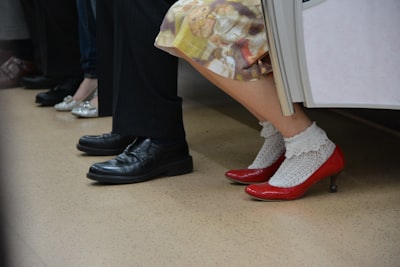Tokyo Subway Guide:What to Do When You’re Lost

The Tokyo subway is one of the most complex networks in the world because it has multiple intersecting lines and a vast number of stations. It is not uncommon for even Japanese people to get lost. The Tokyo subway is fast, affordable, and punctual. It is very convenient, but its complexity is a challenge for foreigners. Especially if you do not understand Japanese, it can be difficult to comprehend the signs. Although there are station staff at the counters, searching for a counter in the maze-like subway can be difficult.
Even after you manage to find the counter and get on the right train, you cannot relax just yet. In fact, being on the train might present the most challenging situation. ‘Which station should I get off at?’ ‘Which train should I transfer to at the next station?’ Since the station staff are in the driver’s compartment, you cannot talk to them. Introverted Japanese people often are wary of strangers, and many are not proficient in English, so even if they see you struggling, few are likely to approach you and offer help.
- Japan’s superhero ‘繊細さん’
- Who are the “繊細さん”?
- If the passenger next to them is sleeping and leans on their shoulder, they do not mind.
- Sitting compactly to avoid elbowing or kneeing the person next to them.
- Giving up their seat to women and elderly people.
- Not sitting in a seat despite it not being crowded.
- Wearing earphones and listening to music.
Japan’s superhero ‘繊細さん’
繊細さん=Sensai-san (Delicate-san)
While staying in Japan, there is one thing you might keep in mind if you’re unsure who to rely on. It’s that Japan has a certain number of people with a Highly Sensitive Person (HSP) temperament, referred to as ‘Sensai-san’. They cannot overlook someone in trouble and tend to actively help others. They are like the Avengers of Japan. By reaching out to such individuals, you will likely receive quick and kind assistance.
‘Sensai-san’ is a term used in Japanese to refer to HSP (Highly Sensitive Person).HSP stands for Highly Sensitive Person, a term coined by psychologist Elaine Aron in the 1990s.Highly Sensitive People (HSPs) possess a remarkable depth of empathy, allowing them to connect profoundly with the emotions and experiences of others. This innate sensitivity fosters strong interpersonal bonds and enriches relationships. Moreover, HSPs often exhibit heightened creativity, drawing from their ability to process information and emotions at a profound level. This creativity manifests across various domains, including art, literature, and music, where their insights and imaginative prowess shine. Additionally, HSPs demonstrate keen observation skills, attuned to subtle nuances in their surroundings. This acute awareness enables them to offer unique perspectives and contribute to innovative problem-solving. In close relationships, HSPs are valued for their loyalty and unwavering support, as they possess a deep understanding of their loved ones’ needs and emotions.
In Japanese culture and society, ‘Sensai-san’ is generally highly esteemed. They are sensitive to others’ emotions and changes in their environment, and therefore, tend to act with meticulous care and compassion. The characteristics of ‘Sensai-san’ are deeply connected to virtues and values considered quintessentially Japanese. Japanese-ness refers to consideration for others, compassion, and a spirit of mutual aid, and the behavior and mindset of ‘Sensai-san’ resonate with these quintessential Japanese virtues.
This time, I will teach you how to identify ‘Sensai-san’ on the train. If you get lost in the Tokyo subway and come across a ‘Sensai-san’, you can feel reassured and ask for help with confidence.
Who are the “繊細さん”?
If the passenger next to them is sleeping and leans on their shoulder, they do not mind.
In Japan, it’s common to see people sleeping on the train. ‘Sensai-san’, being extremely kind, will quietly endure if the person next to them falls asleep, so as not to wake them up. Even if a deeply sleeping stranger leans on their shoulder, instead of alerting them, they freeze as if turned to stone. On one hand, they wish the person would wake up soon, but on the other, they feel it would be cruel to wake someone enjoying their sleep. If you see someone on the train frozen as if a Petrificus Totalus spell has been cast on them, that’s a ‘Sensai-san’. Such a kind-hearted ‘Sensai-san’ will surely empathize with your anxious feelings.
Sitting compactly to avoid elbowing or kneeing the person next to them.
‘Sensai-san’ are very considerate people. They make an effort to sit as compactly as possible to give more space to the person next to them. Among ‘Sensai-san’, there are also busy businessmen. They might read the newspaper on the train but will fold it as small as possible. If you see someone shrinking themselves down like Ant-Man, that’s a ‘Sensai-san’. If you get lost, you can rely on that person.
Giving up their seat to women and elderly people.
This is an obvious one. The kind ‘Sensai-san’ cannot help but give up their seat when they see elderly people, pregnant women, or someone who is injured. Furthermore, if one of a pair sits next to them, they will move so the two can sit together, regardless of age. Such a compassionate ‘Sensai-san’ will not be able to ignore you if you are in trouble.
Not sitting in a seat despite it not being crowded.
‘Sensai-san’ are very kind-hearted, but some of them overthink due to being too kind. If you were sitting on a train and an elderly person stood in front of you, what would you do? Of course, you would give up your seat. However, ‘Sensai-san’ would ponder: ‘Do I look so old that I offended them by offering my seat?’ ‘What if they are getting off at the next station?’ ‘What if they have germophobia and would dislike sitting after me?’ Such worries can be exhausting, so ‘Sensai-san’ might choose not to sit from the start. If you see someone standing even when it’s not that crowded, they might be a ‘Sensai-san’.
Wearing earphones and listening to music.
‘Sensai-san’ are also sensitive to sounds and other people’s conversations. They can feel stressed by loud noises. Even if they hear someone speaking ill of another person they don’t know, it makes them feel uncomfortable. If someone is being scolded or there is an argument, they get agitated and their heart races. Being affected by such things can be exhausting, so ‘Sensai-san’ often wear earphones. It might seem difficult to approach someone wearing earphones, right? However, ‘Sensai-san’, who can calmly assess their surroundings, will surely notice your predicament. If you initiate, they will quickly remove their earphones and listen to your question.
Japan’s superhero ‘Sensai-san’ are often introverted, and not all of them are proficient in English. Therefore, even when they see a tourist in trouble, they might not know how to approach them. They want to help you but are afraid of disappointing you because they can’t speak English. They want to assist you but feel unable to do so. To help a ‘Sensai-san’ help you, please take the initiative. Even if their English isn’t perfect, they will do their best to be of assistance. And when they see your smile, it also saves ‘Sensai-san’ themselves.



